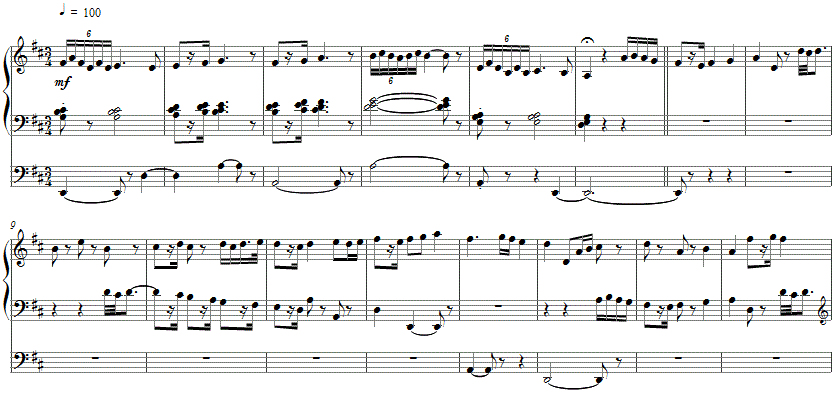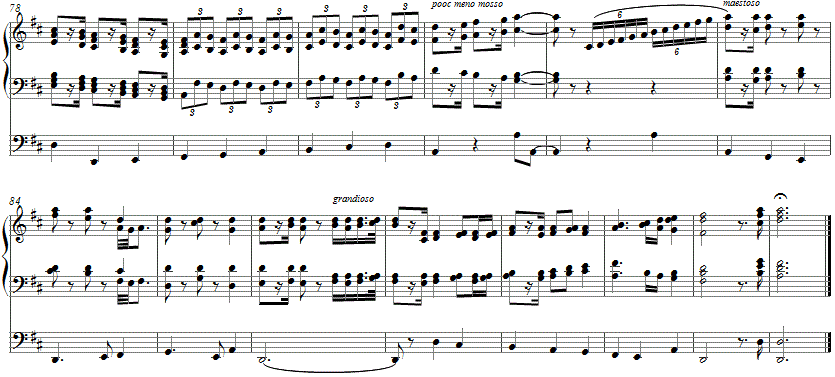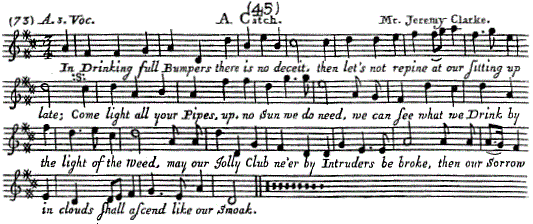Music and Texts of GARY BACHLUND
Vocal Music | Piano | Organ | Chamber Music | Orchestral | Articles and Commentary | Poems and Stories | Miscellany | FAQs
Fancy on a Catch of Jeremy Clarke - (2011)
for organ
The theme is drawn from The Catch Club or Merry Companions being a Choice Collection of the most Diverting Catches for three and Four voices Compos'd by the late Mr. Henry Purcell, Dr. Blow & c. The text for this round by Jeremy Clarke [ 1 ] is: "In Drinking full Bumpers there is no deceit, then let's not repine at our sitting up late; come light all your Pipes up, no Sun we do need, we can see what we Drink by the light of the Weed, may our Jolly Club ne'er by Intruders be broke, then our Sorrow in clouds shall ascend like our Smoak."
An opening gestures sets the key before the theme is stated, beginning at the last beat of measure 6. Thereafter, the theme is taken up in the second voice on the manuals, and thereafter in the pedal in the manner of the catch or round. Decorations and additional gestures make this into a fantasia on them theme, "fancy" referring to the English tradition in part.
The last phrases are marked maestoso and thereafter grandioso, as the short work rallies to a final fortissimo.
The entire work is here,
, an MP3 file [ circa 3' 00" ]
The score for Fancy on a Catch of Jeremy Clarke is available as a free PDF download, though any major commercial performance or recording of the work is prohibited without prior arrangement with the composer. Click on the graphic below for this organ score.
Fancy on a Catch of Jeremy Clarke
NOTES
[ 1 ] Jeremiah (Jeremy) Clarke (1674-1707) was composer and organist at Winchester College from 1692-95. In 1699 he became a Vicar Choral at London's St. Paul's Cathedral. William Croft who succeeded Clarke and he were fellow pupils of John Blow, whom he succeeded as Master of the Choristers in 1704, when he was also appointed organist of the Chapel Royal. Though he composed many secular songs as well as anthems, Clarke is best remembered for a popular keyboard piece: the Prince of Denmark's March, which is commonly called the Trumpet Voluntary, written circa 1700. He is reputed to have committed suicide, the oft-quoted reason being, "...a violent and hopeless passion for a very beautiful lady of a rank superior to his own." The catch is originally notated as follows:


